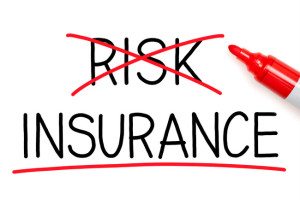Over the last decade, the number of tenants with renters insurance has grown to approximately 40%. Renters should exercise caution to avoid being uninsured for a potential risk.

In these instances, it might be a good idea to spend more for additional coverage.
Floods, earthquakes and sinkholes
Renters policies cover many perils including fire, lightning, smoke, theft, snow and wind. Yet, there are some perils that are explicitly excluded from renters insurance coverage, too.
In the event of a flood, renters wrongfully assume that their renters insurance policy or their landlord will cover any personal property damaged. Flood damage is not covered by renters insurance and anyone who needs this type of coverage must purchase a separate policy. The vast majority of people must purchase coverage through the National Flood Insurance Program (NFIP).
Earthquakes are also excluded from most renters insurance policies. Each year, there are more than 200,000 earthquakes across the U.S. Tenants need to research their local area and determine whether they should add an earthquake endorsement to their renters policy, or buy a separate one to protect their belongings, because earthquakes pose a risk to valuable inside the home, not just the structure itself.
Sinkholes are a peril that is excluded from renter insurance policies. But there are some areas, such as parts of Florida, that experience sinkholes. Sinkholes are depressions in the earth that sometimes appear gradually, (the lesser of two evils as the slow formation allows time for them to vacate the rental) but can also form suddenly and be large enough to swallow buildings entirely, ending with a total loss of property. If the structure in question is a rental, the tenant could face losing all of their belongings.
Roommates
Roommates are not covered by renters insurance, unless they are listed on the policy. One of the frequent confusions renters make is that one rental house of unit needs only one insurance policy. Wrong. Every roommate should have their own renters insurance policy, even the roommates or partners who share the cost of an apartments contents. In the event one needs to file a claim, it will appear on the policyholder’s Comprehensive Loss Underwriting Exchange (CLUE) report, which the insurers will use in the future to price their insurance policies.
Home-sharing services
We’re all familiar with Airbnb and HomeAway, and temporary guests of such services usually are covered by renters insurance. Yet, there is a thin line between occasional visitors and commercial activity. It’s important to know that most renters insurance companies define commercial activity as a host temporarily leasing their space for at least 90 days per year.




